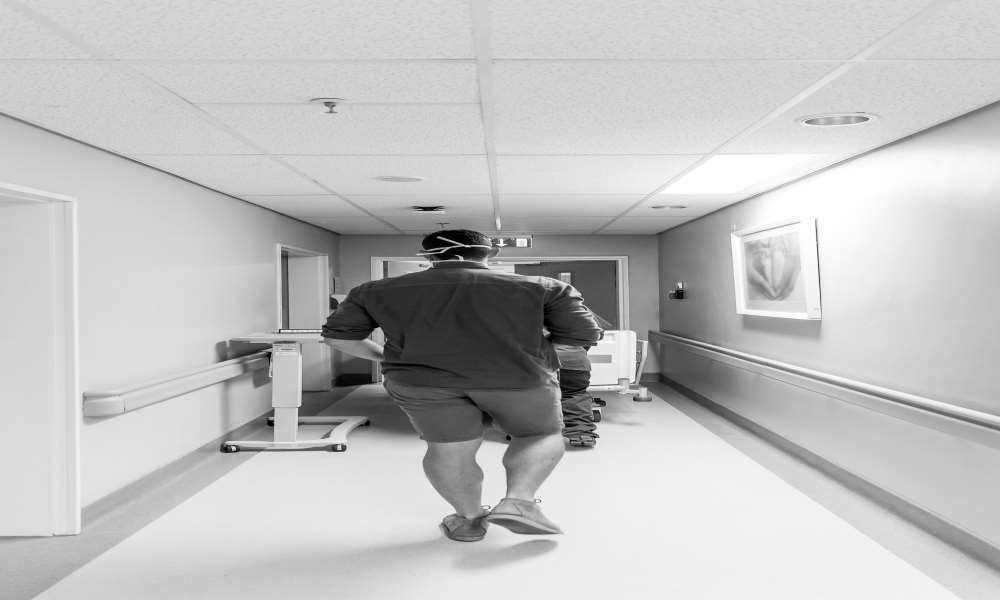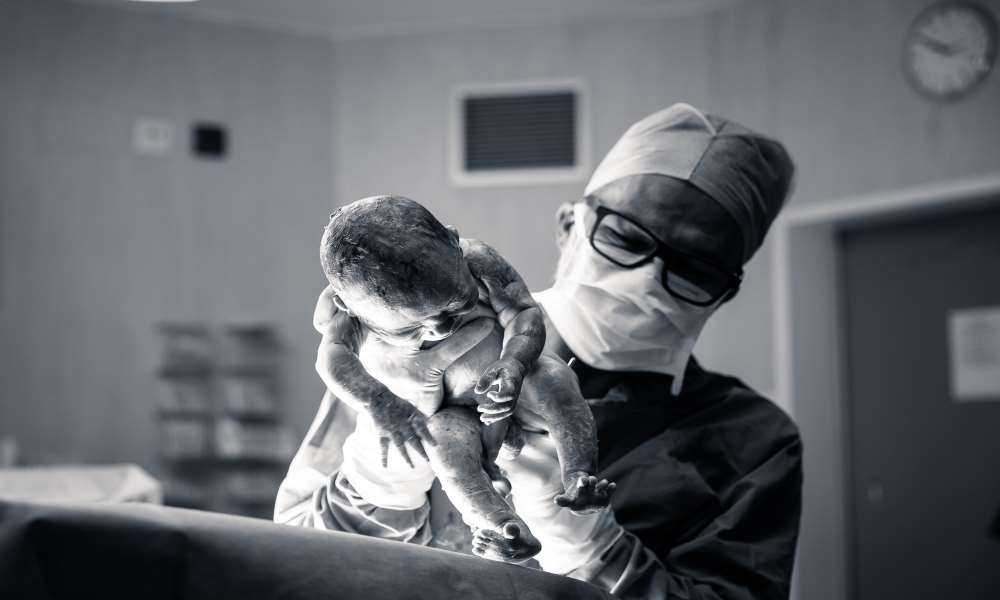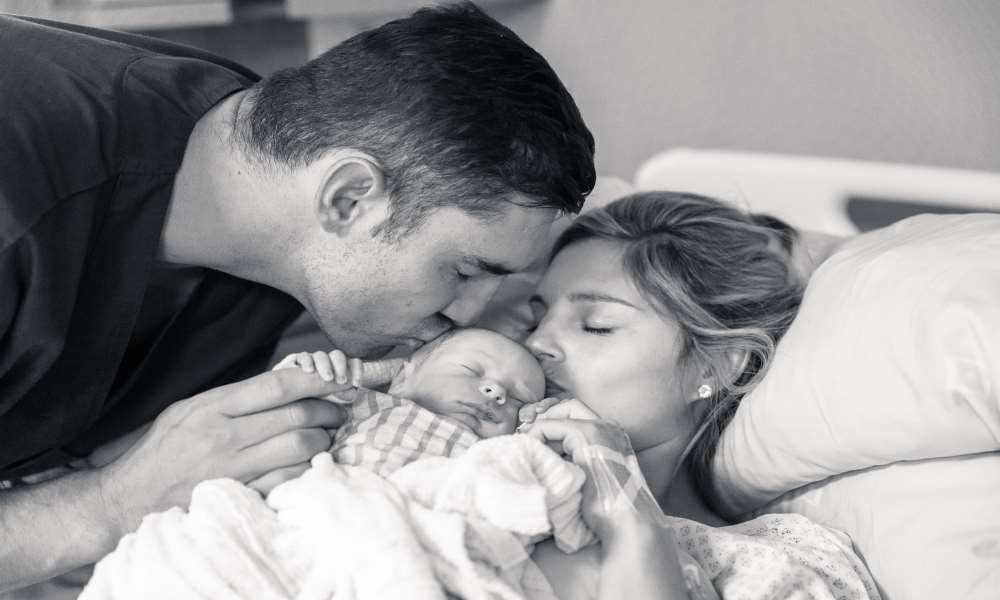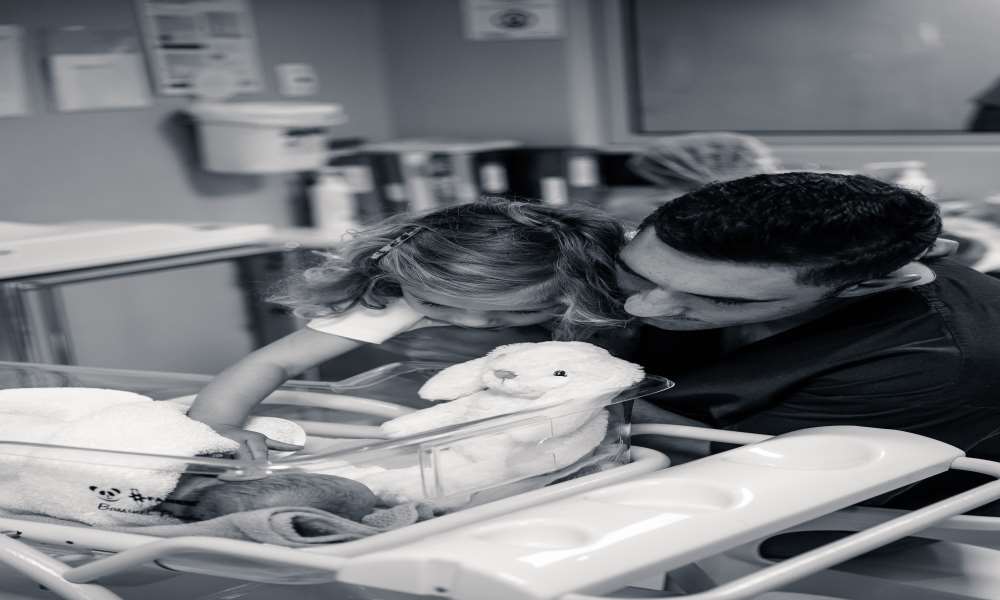Capturing the first breath of life
Opening a treasured brown suitcase full of photos, she realized just how important these memories are.
Henriette Lamprecht – She is a witness to life’s most profound and sacred moment - when a baby takes its first breath outside the womb. As a birth photographer, Janice Thompson has the unique and privileged opportunity to share in the memory of a couple becoming a family. All while capturing it on her camera.
Her father was a photographer and her mother made sure all the dates and events were recorded accurately by writing them down on the back of the printed photos, says Janice.
“I realized the importance of capturing memories at a young age, as we were able to walk down memory lane when opening that brown suitcase full of photos. This made me realize just how important these memories were.”
The first camera she remembers owning was a cheapie, maybe a Nikon.
She wasn’t very fond of it and quickly purchased herself a Canon 550D. “I was on top of the world - purchasing a new camera was quite an investment!”
For many years Janice has been following Marisol from Bloemerus Birth Photography, who moved to Cape Town from the United States. After a few years, she decided to dig a little deeper and find out what she could do to shoot births.
“I appreciate how real and sacred it is. No posing, no directing, just raw emotion.”
Her journey with birth photography started this year after receiving her license just a week before the first recorded Covid-19 case in Namibia.
“My first client was a model call - they were happy to be my guinea pigs!”
Janice initially only wanted to capture C-sections but has already captured three natural births. She arrives an hour before the planned C-section, standing around and capturing what is happening.
“I have images of Zelda (her client) unpacking her bag, sitting on the bed with her husband, and patiently waiting on the staff to give the go-ahead for the walk to the theatre.”
In the theatre, she has areas where she is allowed and areas she may not enter. She may not touch any medical equipment or be in the way of any medical staff.
“The doctors, paediatricians, and medical staff are all so friendly and have been since my first birth.”
Once the baby is born and all tests are done, Janice follows Dad and Baby to the nursery, where she captures the skin-to-skin bonding process. As soon as the big brother or sister arrives, they get to meet their new sibling.
“This precious moment is one that Mommy will never witness, but now she can at least see the photos afterwards. We then move to the room when Mom arrives. No birth is the same, so I make the best of what I get!”
She has to be very patient and very quiet, says Janice.
No interaction is allowed with the medical staff, “you enter the hospital and take pictures”.
She spends a lot of time with the dads, ending up chatting away, but no direction or advice is allowed at all.
You also need to be very calm because, with birth, anything can happen.
“I remember a birth where the baby took a bit longer to breathe. On the inside, I was freaking out but had to keep a straight face. It’s so difficult because as a mother, my heart melts from the moment I capture that first breath of life!”
Janice admits it’s not easy being in the theatre with a birth, especially if you don’t have any medical background.
“I was surprised at how well I cope, but you must be able to stomach it.”
For a natural birth, she normally asks the parents to let her know when the woman has dilated about 6 centimetres.
“Here you follow your gut; it happens so fast.”
Janice has a few doctors that trust her from the moment her client requested permission for her to be present. The whole process involves a lot of paperwork or permissions to be signed off.
She also provides a declaration of what she’s allowed to do and how she captures the birth. Janice is the only licensed SABPA (South African Birth Photographer’s Association) photographer in Namibia. SABPA was established in 2013 to grow birth photography as a professional service within the healthcare realm in South Africa - successfully integrating the profession into the healthcare community. Since then it has established strong relationships with birth professionals and hospital groups across the country and even internationally. A first of its kind - it is a trusted organisation and many hospitals only provide access to SABPA photographers for safety, privacy, and ethical reasons.
Janice ends up taking an average of 1 200 pictures and delivering about an average of 300 images to her client.
Her most special moment thus far was definitely the first baby she captured with the doctor lifting him up to show to Mom.
Normally, women are more comfortable with the idea of capturing a birth on camera, Janice admits.
“You will be surprised how the dads treasure those moments. Before I even sign a contract, I try to meet with Mom and Dad, which helps them to get comfortable.” - [email protected]
*BIRTH PHOTOGRAPHY
*SACRED MOMENTS
Her father was a photographer and her mother made sure all the dates and events were recorded accurately by writing them down on the back of the printed photos, says Janice.
“I realized the importance of capturing memories at a young age, as we were able to walk down memory lane when opening that brown suitcase full of photos. This made me realize just how important these memories were.”
The first camera she remembers owning was a cheapie, maybe a Nikon.
She wasn’t very fond of it and quickly purchased herself a Canon 550D. “I was on top of the world - purchasing a new camera was quite an investment!”
For many years Janice has been following Marisol from Bloemerus Birth Photography, who moved to Cape Town from the United States. After a few years, she decided to dig a little deeper and find out what she could do to shoot births.
“I appreciate how real and sacred it is. No posing, no directing, just raw emotion.”
Her journey with birth photography started this year after receiving her license just a week before the first recorded Covid-19 case in Namibia.
“My first client was a model call - they were happy to be my guinea pigs!”
Janice initially only wanted to capture C-sections but has already captured three natural births. She arrives an hour before the planned C-section, standing around and capturing what is happening.
“I have images of Zelda (her client) unpacking her bag, sitting on the bed with her husband, and patiently waiting on the staff to give the go-ahead for the walk to the theatre.”
In the theatre, she has areas where she is allowed and areas she may not enter. She may not touch any medical equipment or be in the way of any medical staff.
“The doctors, paediatricians, and medical staff are all so friendly and have been since my first birth.”
Once the baby is born and all tests are done, Janice follows Dad and Baby to the nursery, where she captures the skin-to-skin bonding process. As soon as the big brother or sister arrives, they get to meet their new sibling.
“This precious moment is one that Mommy will never witness, but now she can at least see the photos afterwards. We then move to the room when Mom arrives. No birth is the same, so I make the best of what I get!”
She has to be very patient and very quiet, says Janice.
No interaction is allowed with the medical staff, “you enter the hospital and take pictures”.
She spends a lot of time with the dads, ending up chatting away, but no direction or advice is allowed at all.
You also need to be very calm because, with birth, anything can happen.
“I remember a birth where the baby took a bit longer to breathe. On the inside, I was freaking out but had to keep a straight face. It’s so difficult because as a mother, my heart melts from the moment I capture that first breath of life!”
Janice admits it’s not easy being in the theatre with a birth, especially if you don’t have any medical background.
“I was surprised at how well I cope, but you must be able to stomach it.”
For a natural birth, she normally asks the parents to let her know when the woman has dilated about 6 centimetres.
“Here you follow your gut; it happens so fast.”
Janice has a few doctors that trust her from the moment her client requested permission for her to be present. The whole process involves a lot of paperwork or permissions to be signed off.
She also provides a declaration of what she’s allowed to do and how she captures the birth. Janice is the only licensed SABPA (South African Birth Photographer’s Association) photographer in Namibia. SABPA was established in 2013 to grow birth photography as a professional service within the healthcare realm in South Africa - successfully integrating the profession into the healthcare community. Since then it has established strong relationships with birth professionals and hospital groups across the country and even internationally. A first of its kind - it is a trusted organisation and many hospitals only provide access to SABPA photographers for safety, privacy, and ethical reasons.
Janice ends up taking an average of 1 200 pictures and delivering about an average of 300 images to her client.
Her most special moment thus far was definitely the first baby she captured with the doctor lifting him up to show to Mom.
Normally, women are more comfortable with the idea of capturing a birth on camera, Janice admits.
“You will be surprised how the dads treasure those moments. Before I even sign a contract, I try to meet with Mom and Dad, which helps them to get comfortable.” - [email protected]
*BIRTH PHOTOGRAPHY
*SACRED MOMENTS











Kommentaar
Republikein
Geen kommentaar is op hierdie artikel gelaat nie